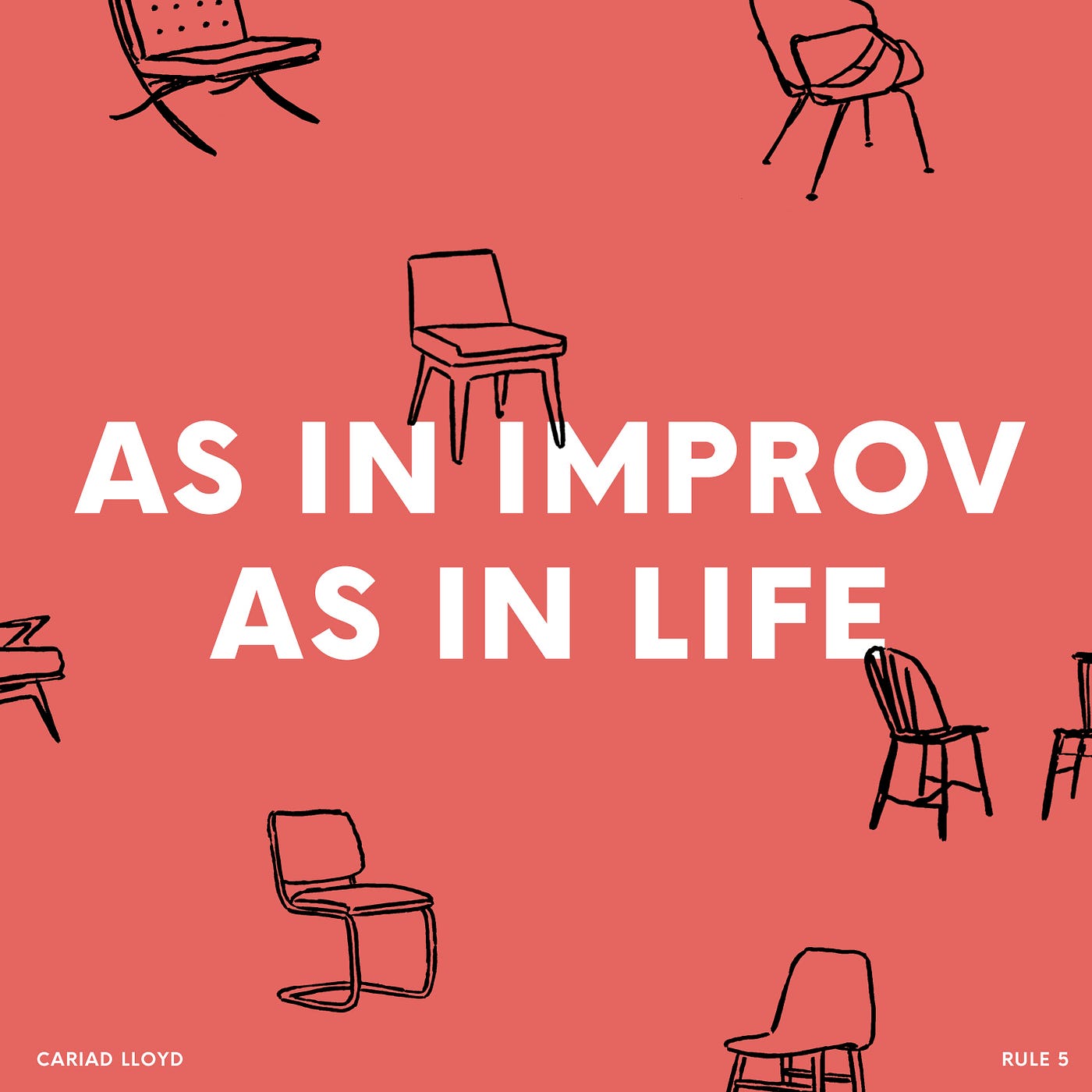
As an improv teacher there are certain phrases that you repeat a lot. Like A LOT, A LOT. Nuggets of improv wisdom that Viola Spolin or Keith Johnstone or Del Close hammered into granite when the stars were young. Jay Sukow did a great job of collecting these together in one place and you can read that here.
You repeat these phrases because they are rich veins of hard-won improv experience concentrated by time and then streamlined by successive generations into the most elegant payload possible. You repeat them because they are a direct hit from the improv source code of the universe.
And also because your teacher said them to you a bunch of times and you figure it’ll kill another five minutes before you break for snacks.
I would argue some of those phrases, like the concept of “accept & build” or treating others like “artists, geniuses and poets” work just as well in real life as they do on stage. They make you a better improviser AND a better person. As Cariad Lloyd said on my podcast, YesBot:

And this is true 95% of the time but there are also a few examples where implementing what you’ve been taught in your improv class out there in the real world might NOT be such a good idea.

In improv terms, this is about not pre-preparing a scene. Don’t come onto stage with the premise and narrative beats already fully formed in your head. You’ll end up desperately trying to lead your scene partner down a very narrow path for which only you have the map. You’ll also deny the audience the joy of watching you both work out what’s important in the moment. As an added bonus there’ll be less dead air in your show because people will fling themselves onto stage with carefree abandon. They won’t have to have an idea first. This leads to much more feet-forward play.
In the real world this advice leads to an endless torrent of people falling from the skies, each one rolling their eyes and concluding that they really should have packed a parachute just before they hit the ground. It’s messy and horrifying and probably shouldn’t be encouraged.

Other people’s idea should be more important than our own ideas and good scenes are discovered not invented. For us to honour this notion, we need to listen like a thief — we need to treat everything we hear as our own idea to be accepted and elevated — if we give ourselves this one job then we become a better improviser almost instantly.
However, if you start listening to your friends conversation solely to harvest personal information such as their credit card PIN, social security number, security system codes and when they’re reliably out of the house at weekends, you’re not going to be very popular for very long. It’s also really hard to get people to bring those things up in casual conversation. Trust me.

Following on from the last point — once we’ve started listening like a thief, we have to make sure every sentence that escapes our scene partner’s lips is accepted, made important and woven into the fabric of the scene. People will want to play with you if you get a reputation for making other people’s ideas the centre of the scene. Think about a time one of your ideas was taken onboard and used by another improviser. It made you feel good, didn’t it? And it makes the team look good too — like telepathic, post-human improv geniuses.
In stark contrast, if you MAKE EVERYTHING A BIG DEAL EVERY MOMENT OF EVERY DAY in the real world then you’ll end up getting a reputation as a drama queen.